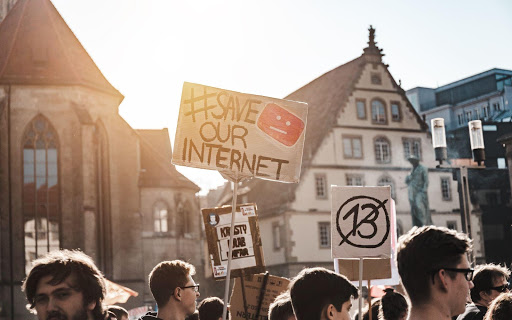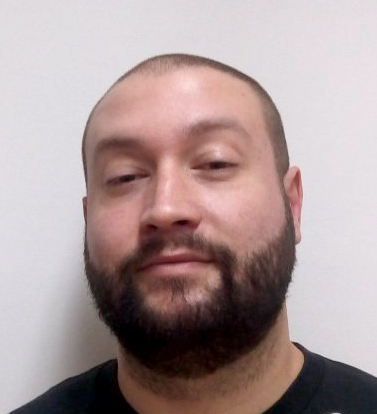
Back in the day, the Internet used to be called a variety of names, one of them was the information superhighway. The reasoning behind this was the idea for the Internet to be the perfect tool for anyone to be able to tap into the almost endless volume of data quickly. However, what came along very fast was Internet censorship.
A lot of people will argue that there are good reasons behind such an act. Looking at it from the perspective of protecting kids from the content that they shouldn't see at their age, it does make sense. However, there is the other, more malignant kind of motivation. This is most commonly a government's attempt to control the data that the nation can view easily and freely, and therefore being able to distort their vision of real-life events.
The major issue that is happening and has extremely detrimental and devastating effects on the population is the inclination towards extreme or even full-blown censorship that is already happening in certain parts of the world. So, the big question is - How far will Internet censorship go?
Full-blown censorship
As we have just established, full-blown censorship is possible, and even in action in certain parts of the world. For example, the Chinese government has incorporated its Golden Shield Project which is an extremely powerful system of censoring and filtering web content. It is otherwise known as the Great Firewall of China. Believe it or not, there is actually a huge number of Chinese people who don't even know about Google and Facebook.
This is all possible because China has eight ISPs which are all under control by the Ministry of Industry and Information Technology. Furthermore, the firewall that it uses blocks a whole lot of IP addresses, tracks and filters certain keywords and phrases, and even taps into the Domain Name System so that when you try to access a banned site, you get nothing. The whole Internet world in China is drastically altered, as there are no Twitter, Facebook, Wikipedia, or Google. This significantly hinders people's ability to ask questions and expand their knowledge beyond what is "allowed".
Brands like Certified Tech Direct are pointing out that children are mostly using smartphones to access the internet, and some people would say that censoring certain websites that could be harmful makes sense. But full-blown censorship like the one in China - is it protecting the interests of the people or the government?
How does this affect the rest of the world?

While China may seem "far away" to a lot of people, the fact that this kind of technology and approach exist should worry everyone. It is important to note that there are countries out there, such as Singapore, which have been exerting a significant amount of pressure on the aforementioned huge companies. Their main goal is the hunt for and correction of "fake news". In fact, an "anti-fake news law" has been introduced recently, which allows the government to take down any articles that are against the rules that the government has imposed.
While this may seem like a "noble cause", with the claim that the main goal is to remove any false information online, the fact remains that this is a form of Internet censorship that the government can use in any way that they find fit. In other words, Singapore may not have the technology that China has, but it holds pressure upon the Asian headquarters of companies like Google and Facebook.
In fact, the West already has reasons to worry, as both the French and US presidents have already threatened to introduce certain measures that will enable them to control and censor the online world of information. Just think about the fact that Mark Zuckerberg has stated that he is on board with the whole concept of regulation and believes that four factors should be under control - privacy, harmful content, election integrity, and data portability.
The fight against censorship
Next to many vocal opponents of censorship, there are also organizations that do their best to make people aware of how powerful and dangerous it is, as well as to help fight it.
There is the OpenNet Initiative, which as a group that has a goal to let the whole world know about all the way that certain countries censor information. Certain departments at the Harvard Law School, the University of Toronto, the University of Cambridge, and Oxford University are active participants in this group.
The Censorware Project which has existed since 1997 focuses on another aspect. They do their best to educate Internet users all about web filtering software and methods. On their website, you can find everything that you need about current web filter programs out there, as well as any news regarding censorship across the globe.
Reporters Without Borders is a group that deals not only with the Internet but also with any form of censorship that countries use to restrict information. They believe that "censorship tells the wrong story".
Final words
One of the ways to battle censorship is to use virtual private networks (VPNs). These are, basically, encrypted proxy servers which enable you to keep your actual IP address hidden. Instead, it looks like you are surfing the web from a completely different country. However, this isn't a 100% secure solution. For example, aforementioned China's firewall can detect almost any VPN and block it.
So, what can we conclude about the future of censorship? The scary fact is that severe forms of it exist, and can be implemented almost anywhere, depending on the situation.
Guest Author

Nick Brown is a blogger and a marketing expert currently engaged on projects for Media Gurus, an Australian business, and marketing resource. He is an aspiring street artist and does Audio/Video editing as a hobby.
